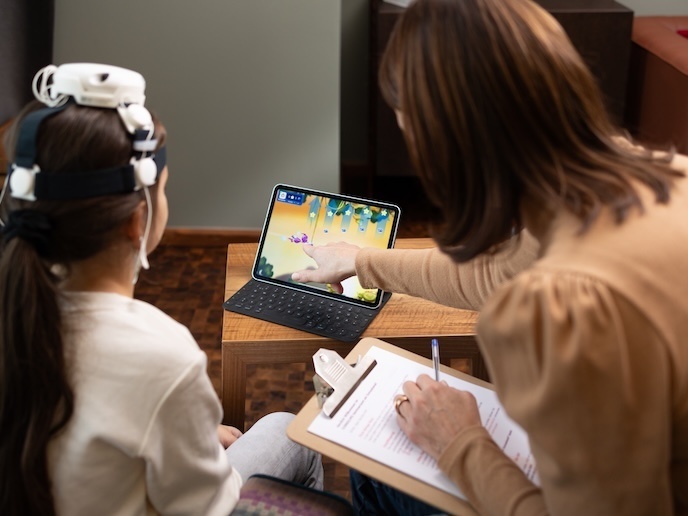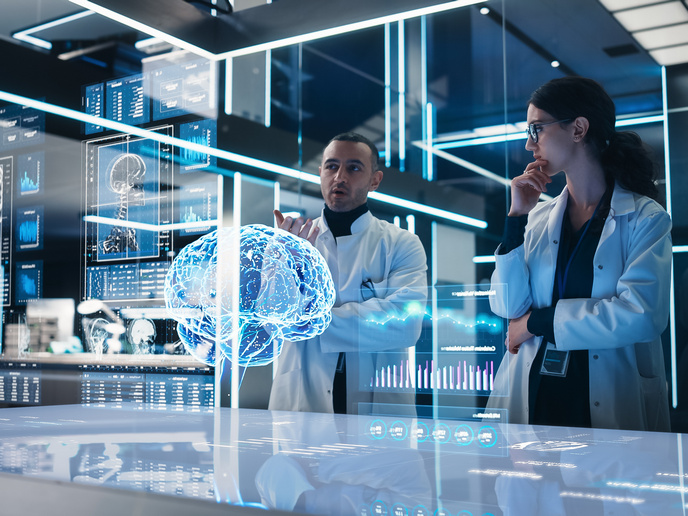A personalised approach to neurodiversity-focused therapy
It is estimated that 20-22 % of the EU population is neurodiverse(opens in new window), a concept that embraces the idea that neurological differences, such as autism, ADHD, dyslexia and dyscalculia, are not deficits or disorders, but rather natural variations in brain function. Helping families and children with neurodiversity traits better integrate into society is the Brainhero – Embracing Neurodiversity(opens in new window) project, which was supported by the European Innovation Council(opens in new window). The project is unique in that it prioritises using technology as a means not to ‘treat’ in a narrow medical sense, but to reach a wider audience of patients and ensure consistent, high-quality therapy administration.“The project promotes a conceptual shift from ‘treating to modify’ neurodiverse individuals to ‘educating into flexible expressions’, respecting their unique traits and strengths,” says Brainhero – Embracing Neurodiversity project coordinator Christof Goetz. “This framing recognises that success lies in helping individuals become aware of their abilities and adaptively express them depending on the situation.”
A portable therapy solution for more personalised care
At the heart of the project is a home-based electroencephalography (EEG) neurofeedback solution that therapists can use when working with neurodiverse children. The portable device enables clinicians – including doctors, neurologists and psychologists – to deliver remote, digitally mediated behavioural therapy, designed in the form of structured training regimens with defined intensities and durations. “By reducing the need for in-person clinic visits, our approach ensures that therapists can focus their time and expertise on the individual needs of each patient, thus enhancing the personalisation of care while maintaining scalability and efficiency in service delivery,” explains Goetz.
Improving key fundamental skills
The Brainhero approach to therapy also gets results, with clinical data showing a modest yet meaningful improvement of around 10 % in such key fundamental skills as socialisation, emotional regulation, attention span, hyperactivity and ability to follow instructions. “These improvements have translated directly into better interactions at home and in schools, thereby generating a tangible, real-world impact on the lives of neurodiverse children and their families,” adds Goetz.
EU Medical Device Regulation certification achieved
Thanks to the support of the EU funding, the project was able to engage with a pan-European network of clinical partners, allowing the team to design, develop and scientifically validate its clinical claims and findings. Many of these findings were later shared with clinicians, policymakers and patient advocacy groups via scientific publications, conferences, workshops and demonstrations. This network also played a key role in the project achieving EU Medical Device Regulation (MDR) certification for its solution. “The EU MDR certification not only validates the safety and efficacy of our device but also positions it for broader adoption in EU healthcare systems,” notes Goetz.
Benefiting hundreds of neurodiverse families and their children
The Brainhero – Embracing Neurodiversity project has directly benefited over 200 families and their children, with patient feedback being overwhelmingly positive. “Combining evidence-based therapeutic methods with scalable, technology-driven delivery models, the project has helped increase access to care, ultimately fostering a more inclusive society,” concludes Goetz. The project team is currently using machine learning techniques to develop a highly personalised clinical application where therapy training is tailored to specific conditions and delivered as a one-person-one-time model.







